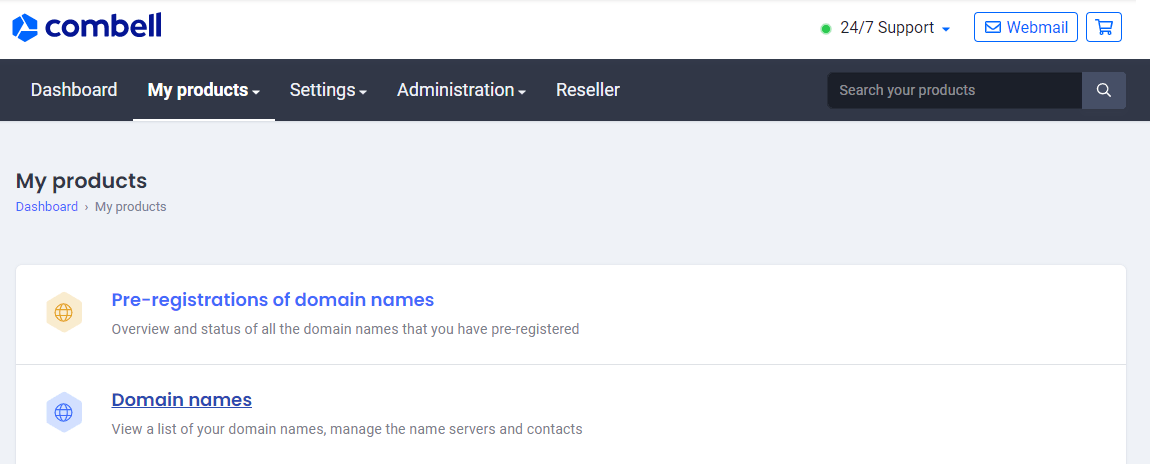Are you looking for the cheapest web hosting? Here is what to look out for!

If you want cheap hosting, you should definitely consider the whole picture. Because when it comes to the best web hosting, the price is not the only factor to take into account: reliability is also a key consideration. The cheapest web hosting is rarely the most reliable. Our tips will ensure that cheap hosting will not cost you too much!
Web hosting?
Here is some basic information for starters: web hosting is a place where you can host your website or application. Just like you save a text document on your own computer, you can save a website or application on a computer belonging to your hosting provider (a server). That server is on day and night, ensuring that your website is available at all times.
Inexpensive hosting: all-inclusive?
When you think you have booked an all-inclusive package in a five-star hotel, it is quite unpleasant to find out that you suddenly need a gold wristband for a cocktail by the pool instead of your blue one. So make sure you do not have to face similar situations when it comes to web hosting!
A basic web hosting service, i.e. renting web space, actually involves many other aspects. Some hosting companies will seduce you by offering low prices and the promise of the cheapest web hosting, but they often 'forget' to mention the other costs involved. So be sure to check whether these costs are included, and if they are not, how much extra they would cost you:
Domain name
A domain name is usually not included in your hosting package, which means you have to register one separately. With cheap hosting, it is sometimes possible to build a website whose domain name is linked to the hosting provider itself. In that case, you get a free domain name like mywebsite.hostingprovider.be. That does not come across as very professional, and is obviously something you should avoid for your business.
When you want to register a domain name, the best thing to do is to register it with the same hosting company that provides your web hosting services. This will allow you to manage both using the same user-friendly control panel.
Mailbox(es)
In addition to providing storage space for your website, your hosting provider should also provide space for you to receive e-mails and create your own e-mail addresses. A good hosting partner will provide at least one adequately sized mailbox (e.g. 1 GB).
Tip:
With Combell's most affordable web hosting package ('Business'), you get 50 mailboxes with a capacity of 25 GB each, and you can create an unlimited number of e-mail addresses.
Data traffic
When people visit your website, they download the information from your hosting provider's server. This means that this computer must have a certain capacity to handle all that data traffic. If your website has 100 pages with an average size of 2 MB (pictures, text, videos) and attracts 100 visitors a day, you will already need more than 5 GB of bandwidth!
A good hosting partner will provide unlimited data traffic. If you do not have unlimited data traffic, you may be charged extra when your website attracts many visitors.
Tip:
All of Combell's web hosting packages include unlimited data traffic.
You can also read our article:
Free SSL certificate
If you want to include forms on your web page, it is best to secure your website further. You can do this by installing an SSL (Secure Sockets Layer) certificate, which will encrypt the data exchanged between you and your visitors.
Most hosting companies offer a free SSL certificate, but you can also choose to purchase an SSL certificate that offers an even higher level of security.

Added bonuses
If you are more technically inclined, the specifications of a hosting package will interest you even more. Does a hosting package offer easy (and free) FTP access? Can you create subdomains and run scripts for free? How easily can you back up your files and restore backups?
You can also read:
Beware of unprofessional shared hosting solutions provided by low-cost hosting companies
The cheapest option for web hosting is usually 'shared hosting', where several websites belonging to different users are 'stored' on one server. Unfortunately, some low-cost hosting providers skimp on security and infrastructure. So, once again, we must face the facts: purchasing inexpensive services will most likely cost you more money in the end.
Good shared hosting ensures that you are not inconvenienced by your 'neighbours' on your shared server. This is why Combell uses jailing: this way, every website is neatly separated from the neighbours.
For shared hosting, a good hosting company makes sure that websites run smoothly and safely. Among other measures, the provider does this by neatly separating each website on a shared server from its neighbours (jailing).
The risks of lousy hosting
If you choose a hosting company with poorly configured shared hosting (without 'jailing', for example), you will face the following risks:
Longer loading time of your web pages
When one of the other websites on your shared server offers large files or attracts many visitors, it requires a lot of processing power from your server. As a result, your website will load more slowly if 'jailing' is not used. And that will lead to irritated customers, fewer sales and a lower SEO score, meaning a lower Google ranking.
Besides 'jailing', a hosting provider such as Combell also makes sure that its servers host an acceptable number of websites. This means that we do not 'cram' our servers with tons of websites, so that there is always enough breathing space and capacity for each website.
Security
If one of the other users on your server is less careful about the security of his or her website, he or she is at risk of being hacked. If you are not completely shielded from that 'neighbour', the hacker can also gain access to your databases and files.
Cybercrime
Companies that provide very cheap web hosting are not particularly concerned about who their customers are: they just want to host as many websites as possible on their servers.
This can have unpleasant consequences for you. If you share a server with a cybercriminal or fraudster, you run the risk of that entire server being seized by the authorities. In which case you would lose your website.
But things do not have to be this bad: you can also get into trouble even if your rogue neighbour just sends too many e-mails, (see below)!
Spam
If shared hosting providers do not monitor their servers closely enough, your neighbour may very well be a spammer. If this person sends too many e-mails, there is a risk that the entire server, including your website, will end up on a blacklist. And if that happens, you will not be able to send any more e-mails yourself!
Tip:
At Combell, mail servers and web servers are separated so that high e-mail traffic (legitimate or not) does not affect web hosting.
Web hosting is more than just web space at the lowest price
You know very well that building a house on cheap but flood-prone land is a bad idea. So why would you do the same with your website? For a well-functioning website, you need a solid foundation: reliable web hosting.
Besides the obvious features of a web hosting package and the security of your website, there are a few other things that you should consider when choosing a hosting provider.
What extra services does your hosting provider offer?
Support
When something goes wrong, you want expert and fast support. In your own language. And at a time that suits you best.

Example:
At Combell, each customer benefits from our free support service, 24/7. We are always there for you, even if you experience problems on Christmas Eve!
Redundant infrastructure
Good hosting providers run everything on a redundant infrastructure (meaning they have duplicate the available resources). Whenever there is a problem, whether with the server or with the network, a good hosting partner always has a plan B. That way, the hosting is immediately moved to a redundant system, allowing you to avoid any problems.
Example:
For each package, Combell has a redundant infrastructure available in its data centres, whether the problem involves power supply, network connections or physical servers. This way, we can guarantee the availability of your server environment.
Backups
Each hosting company has a different backup policy. Ideally, backups should be created automatically. And, when necessary, you should be able to restore them without any difficulty.
Example:
With Combell's most affordable package ('Business'), we fully back up your databases and the files from your website on a daily basis. These backups can be restored free of charge via the control panel for 14 days.
Continuous monitoring
A responsible hosting provider keeps a constant eye on your services. Server load and data traffic are continuously monitored. This way, the hosting company can respond swiftly and appropriately in the event of a DDoS attack.
Example:
Combell keeps a close eye on all its servers in order to be able to guarantee the best services in terms of performance, accessibility, vulnerability or suspicious activities. This way, your website will stay online, and you will not have to lose any sleep over it.
User-friendly control panel
You should not have to be trained to manage a website and a hosting package. That is why a professional hosting company provides a user-friendly control panel, allowing you to manage and activate as many features as possible yourself.

Example:
Combell has developed its own control panel, in which the latest features are immediately available. If our customers have any suggestions, these are always taken into account when adjusting the control panel.
Would you like to find out more?


